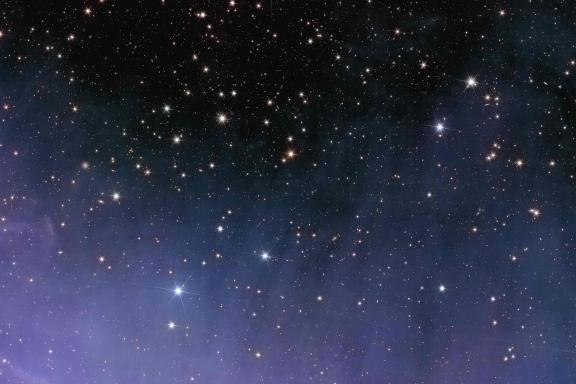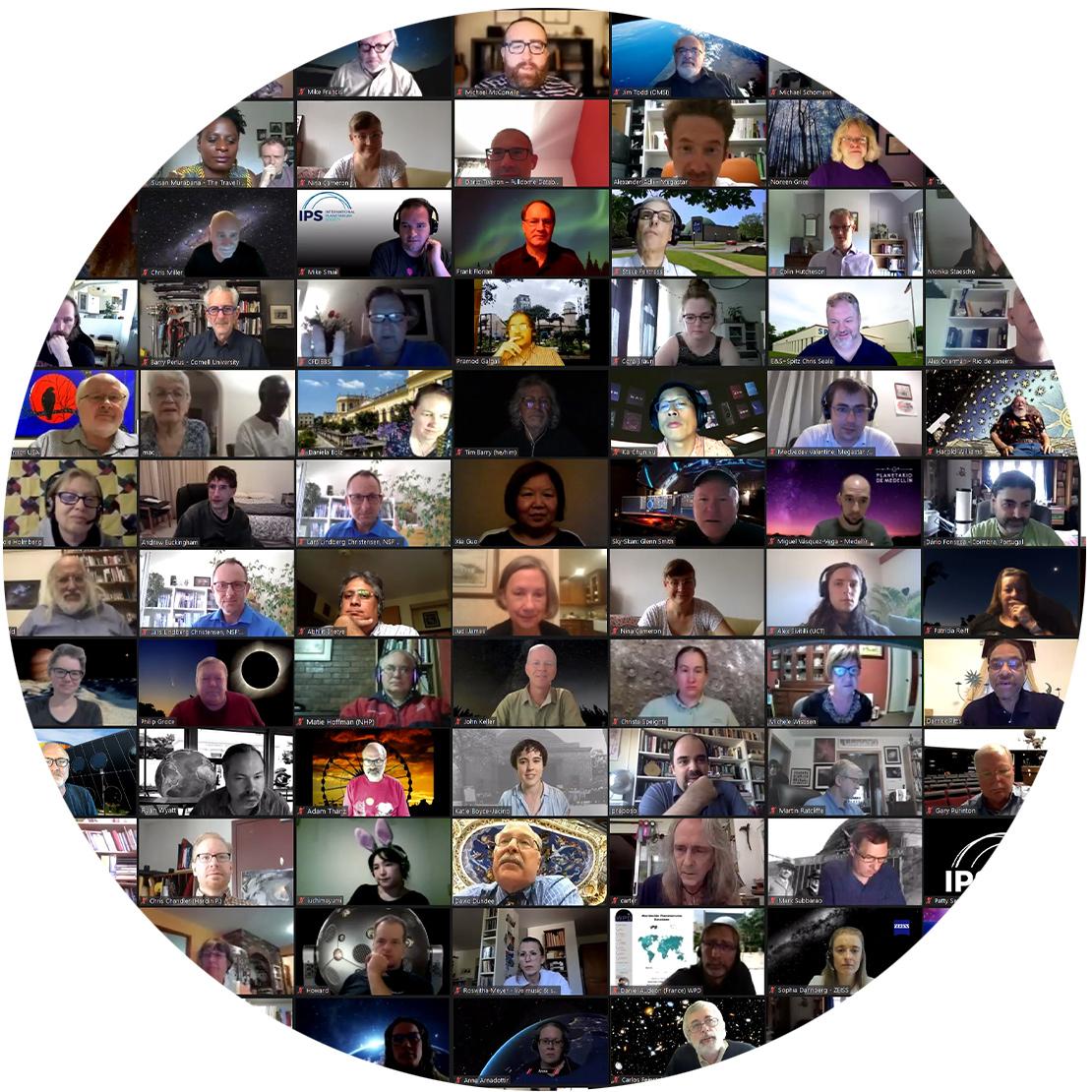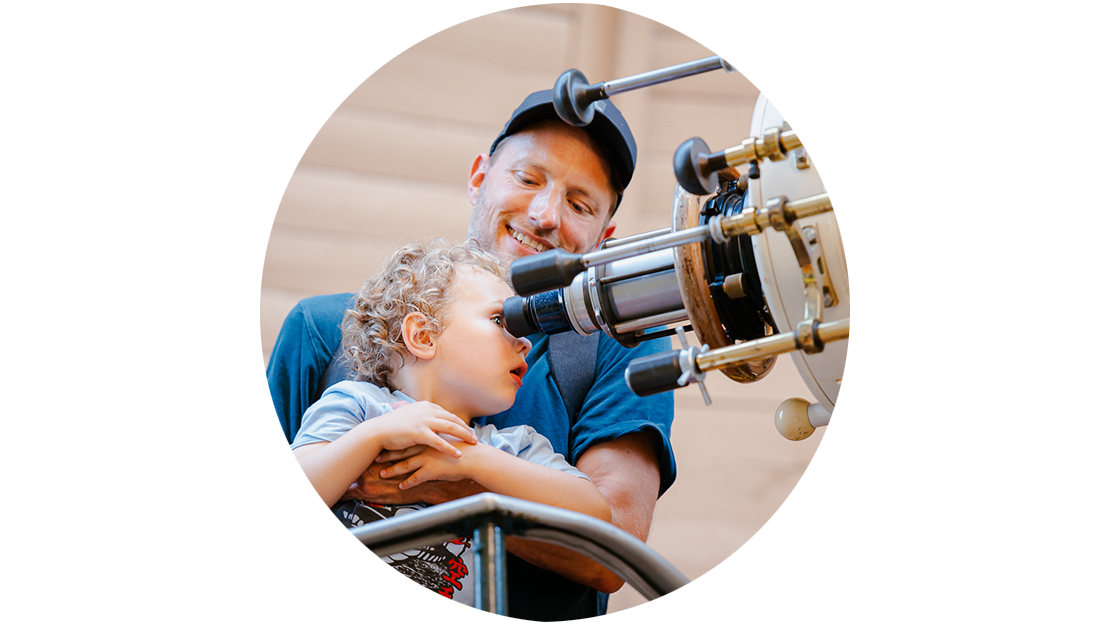
Good to know
Groups
Moon, Saturn, Telescope, Astronaut, UFO, or Rocket? Which group am I and what does this mean?
Due to limited capacity, we will be splitting you into the above groups. You will receive a group assignment when you check in.
Monday:
Groups Moon, Saturn and Telescope will stay at the Arena.
Groups Astronaut, UFO and Rocket will go to the Zeiss-Großplanetarium.
Tuesday:
Groups will switch locations so that everyone experiences presentations in both locations:
Groups Moon, Saturn and Telescope will go to the Zeiss-Großplanetarium.
Groups Astronaut, UFO and Rocket will stay at the Arena.
When at the Arena, one group will be in the dome for sponsor sessions and then the other two will be able to attend workshops or hold their own discussion group. There will be three cycles so that all three groups attend the sponsor sessions and the workshops. The Monday presentations are the same all day and the Tuesday presentations are the same all day.
When at the Zeiss-Großplanetarium, all three groups will be together in the dome for both sponsor sessions and delegate presentations. These presentations are the same on both Monday and Tuesday.
Should you have questions, concerns, or special requests, the team would be happy to help you during the check-in process!
Barrier Free
Germany has been working for years to make the country barrier free (accessible for everyone’s abilities). With many buildings having historic status due to their age, this has been an important and on-going process. While there are always improvements that can be made, visitors will find that all public transportation and almost all attractions are mostly—if not completely—barrier free.
Conference Venues
- The Arena Berlin Confernece Center is barrier free.
- The Zeiss-Großplanetarium is barrier free.
- The Planetarium am Insulaner is almost completely barrier free. The Planetarium will be undergoing extensive renovations over the next two years, and will be under construction during the conference. There will be a constellation shootout - prior registration is required due to capacity regulations.
- The Wilhelm-Foerster Sternwarte (optional visit) and the Archenhold-Sternwarte (observatory), due to its historic nature/the age of the building, are unfortunately not completely barrier free at the moment. Every possible accommodation will be made to meet the needs of our visitors.
- The Zeiss-Planetarium Jena and Restaurant Bauersfeld are barrier free.
- There will be barrier free conference tour options.
- The gala venues, ZENNER and the Archenhold Observatory have barrier free access.
- All conference sites will have a quiet area available for attendees who may need a low stimulus area.
- Hearing assistance devices are available for conference attendees if needed. Sighted guides can be made available upon request. Some programs in the domes are available in multiple languages with our world languages system.
Meals
We know that there are many different dietary needs in our community. Therefore, we will always have several options at each meal to meet any special dietary needs. We will always have delicious, full meal options available for everyone. Nobody will go hungry during IPS 2024!
Water, coffee, tea, soda and juice will always be available for attendees to prevent dehydration. Small snacks will also be available during breaks and at any time for anyone who may need to balance blood sugar levels.
| Date | Time | Meal | Location |
| 21.07.2024 | 7:00 - 8:00 pm | Welcome reception (small plates, drinks, included with registration) | Arena |
| 22.07.2024 | 11:15 - 12:15 am | Lunch | Arena |
| 22.07.2024 | 11:45 - 12:45 am | Lunch | ZGP |
| 22.07.2024 | 7:30 - 8:30 pm | Dinner | Arena |
| 23.07.2024 | 11:15 - 12:15 am | Lunch | Arena |
| 23.07.2024 | 11:45 - 12:45 am | Lunch | ZGP |
| 24.07.2024 | 09:00 - 10:00 am | Coffee with the sponsors (coffee and pastries) | Arena |
| 24.07.2024 | 1:00 - 2:00 pm | Lunch | Arena |
| 24.07.2024 | 8:00 - 9:00 pm | Dinner | Arena |
| 24.07.2024 | 9:00 pm - 00:00 am | Cocktail party with the sponsors | Arena |
| 25.07.2024 | 12:15 am - 1:15 pm | Lunch | ZGP |
| 25.07.2024 | 5:15 - 9:15 pm | Banquet (ticket required) | ZENNER |
| 25.07.2024 | 12:15 am - 9:15 pm | After party (open to all attendees, included with registration) | ZGP |
Live Stream
After the success of the IPS 2020 Virtual Conference, it is clear that even when we are able to meet in person again, that this option must remain available to IPS members. Not everyone can attend the conference in person, whether it be due to finances or because someone has to stay to keep the planetarium up and running.

Information regarding IPS 2024 live streaming opportunities coming soon.
Mentors
Attending your first planetarium conference, or your first IPS can be overwhelming, especially if you are new to the field. Therefore, during registration there will be an option to be paired up with a mentor. New delegates, and those who would like to have a mentor, can request to be a mentee. Veteran members can offer to be a mentor at this point too.
Before the conference, the two can exchange contact information and get to know each other a little too so that there are always friendly faces waiting for everyone when they arrive at the conference!
Languages
Maybe you don’t speak German or you only know how to say “Guten Tag?” No problem! In Berlin almost everything (i.e. signs in train stations and at museums) is in at least German and English (and often other languages too!). The city is extremely international. Furthermore, almost everyone speaks at least English.
Thanks to the international draw of the higher education institutions and the tech industry in Jena, you will also find a large number of things in both German and at least English. Most people will also be able to speak at least English. Jena is a historic smaller city with all the perks of a large international metropolis!
In all the major cities in Germany, and especially in trains, train stations, airports, and museums, multilingual options are available. You will see very quickly, that you do not need to know German to have an extremely enjoyable visit!
Finally, during the course of the conference, there will always be Stiftung Planetarium Berlin team members and Zeiss-Planetarium Jena team members to help with any language concerns. They will also help when traveling between sites and to conference tours to ensure that everyone finds their way and understands what is going on.
Language Support during the Conference
The teams in Berlin and Jena understand how daunting it can be to have to speak to others in a different language. Listening to presentations all day and presenting in another language can be even more formidable. This is why we want to support you!
The language used for the IPS conference is English, but of course not everyone feels comfortable or confident with their English language abilities. During registration, attendees can submit the languages they speak. The attendees will be able to see who speaks what languages and meet up at the conference to help support one another (and take a break from speaking another language if need be).
Parents with Babies & Children
We in Berlin and Jena know how important your family is, and that sometimes receiving professional development is only possible if your children can join you. That is why we have something special planned!
Parents with Babies
Parents are always welcome and should never have to feel torn between career and their baby. We have made arrangements for quiet areas at all locations as well, for when a calmer environment is needed for a while. Nursing is always allowed no matter the location, however, lactation rooms will always be available if a mother would prefer her own space.

Parents with Children
Children are always welcome to join their parent(s) in sessions as long as they are not being disruptive. Children may have a nametag as a special conference attendee if desired by the child and parent.
Space Explorer’s Day Camp
Children ages 3-12 can enroll in the Space Explorer’s Day Camp, which will take place at Arena Berlin. The enrollment cost includes morning snack, lunch, afternoon snack, and dinner, as well as the cost of all materials and childcare. Children will explore different themes, such as upcycling, engineering and more together! Multilingual, professional child caregivers will be present the entire time so you can enjoy the conference, and your little ones can too!
Weather in Jena & Berlin
Weather in Jena
Jena is situated about 163m above sea level. The climate in Jena is warm and moderate. Jena has a considerable amount of rainfall during the year. This also applies to the driest month. The climate in this Jena is classified as Cfb (temperate, humid and warm), according to the Köppen-Geiger classification. July can be a little rainy with 55 mm of precipitation. The sun does come out in July as well, though, and temperatures can be as low as 13°C (55°F) over night or as high as 24°C (75°F) during the day.
Weather in Berlin
Berlin lies on at 52.6° Northern Latitude, which means in July, we have very long days – you can enjoy natural light until about 22:00 (about 17 hours of sunlight per day)! In July, the weather in Berlin is typically warmer. Temperatures are typically around 17°C (62.6°F) in the early morning and at night, while during the day it can reach at least 25°C (77°F). Berlin does occasionally experience heat waves in July, but typically, the temperatures are moderate and it is quite sunny. However, there are usually about 8 days of rain within the month. The good news is that these showers are often brief (offering the perfect amount of time to grab a cup of coffee).